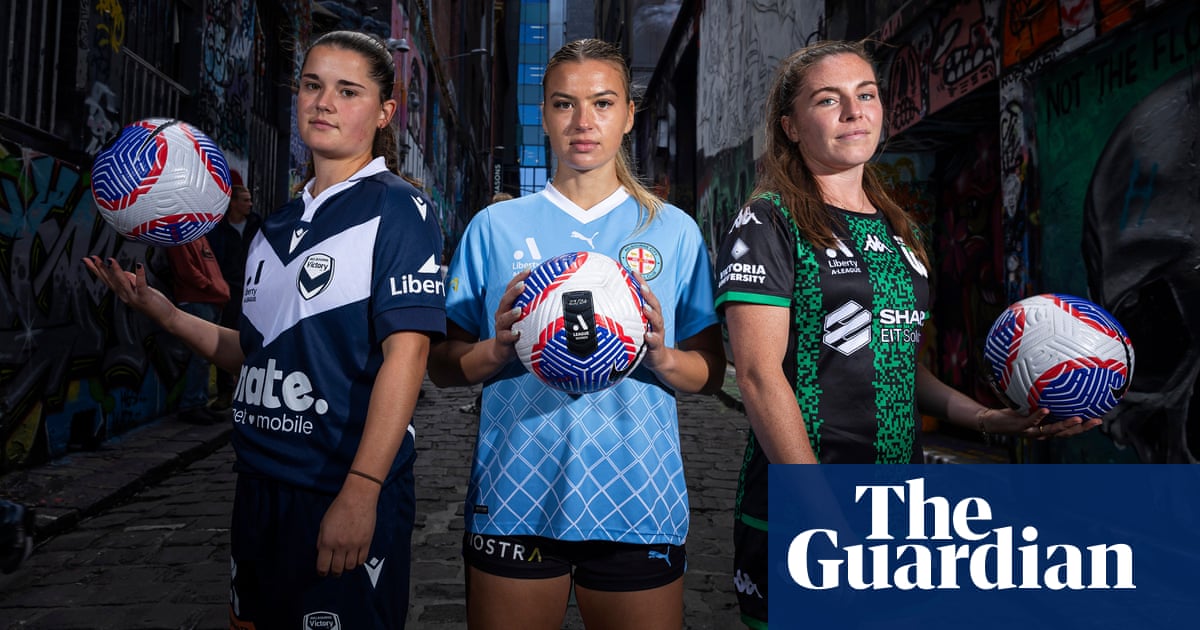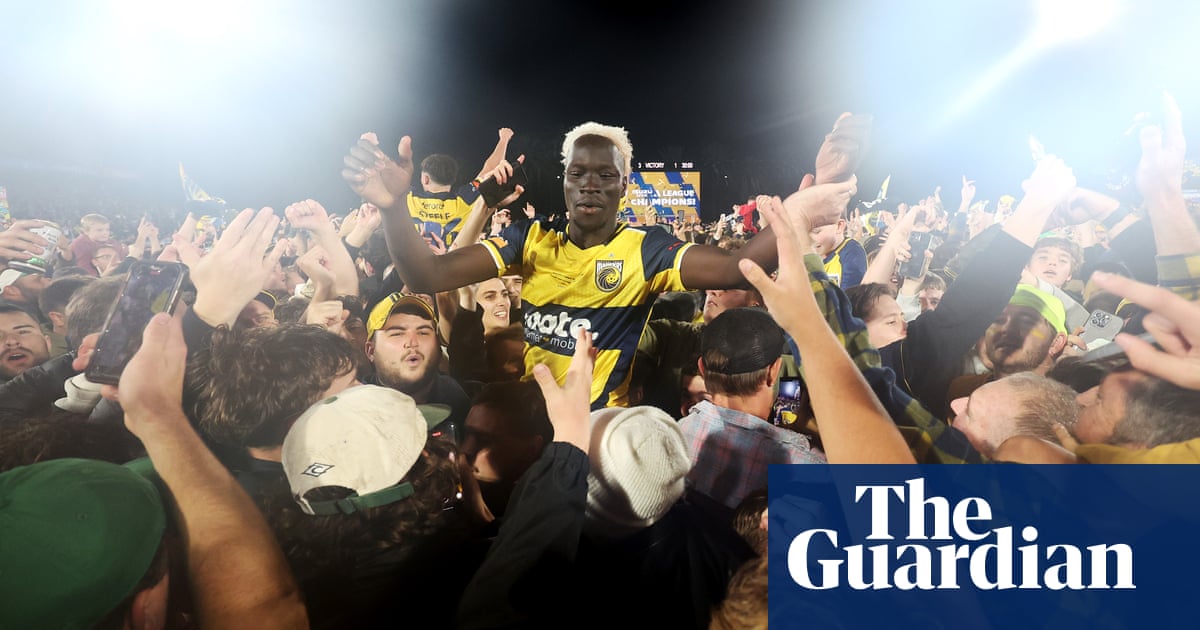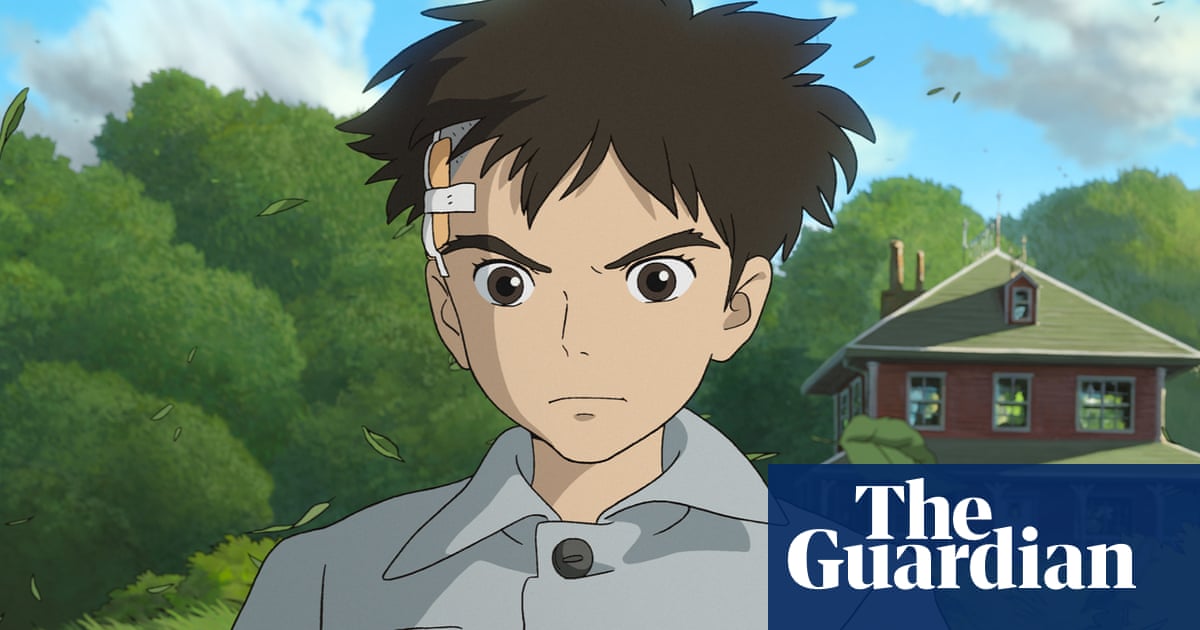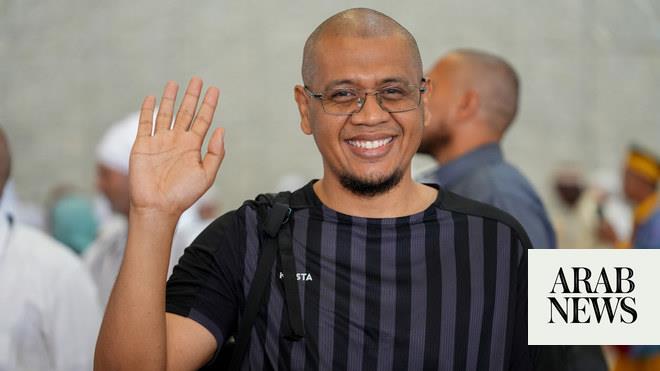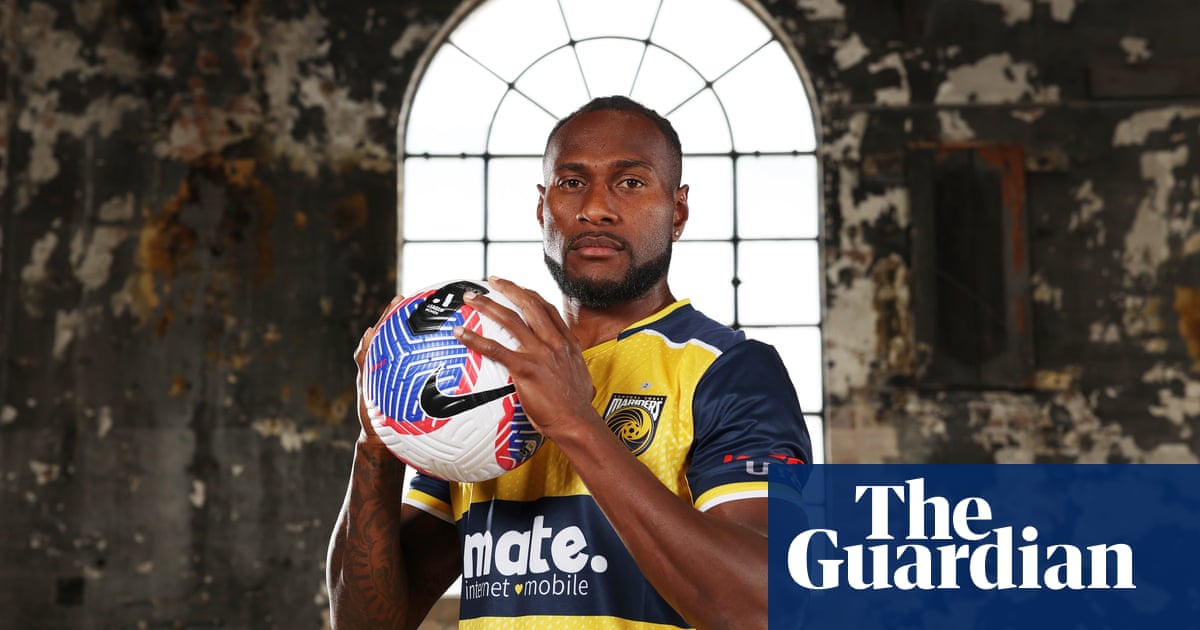
The overnight success of A-League champion and Vanuatu’s first professional footballer Brian Kaltak has amplified calls for Australia to do more to support Pacific football, particularly as the prime minister, Anthony Albanese, flags a commitment of millions of dollars each year to support a rugby league team from Papua New Guinea.
Kaltak’s Central Coast Mariners are preparing for the defence of the men’s title they won in June, and their first match against Adelaide United is on Friday night. A year ago the defender signed in Gosford, initially as an injury replacement player, after playing most of his career at the semi-professional level in New Zealand. He went on to play 25 matches in the heart of the Mariners’ backline.
Although his rise appears sudden to observers in Australia, 30-year-old Kaltak said the breakthrough had been the result of years of work. “Always growing up, I never think of anything else but, just the mindset of playing this beautiful game and getting a professional contract,” he said. “I don’t know why, but it happens to me, and my mind was just always always focused on that.”
His perseverance has been rewarded with a two-year contract extension in Gosford. But while some Pasifika players – such as Fijian striker Roy Krishna – have come before him, Kaltak’s unconventional journey typifies the challenges faced by those who grow up in Oceania.
Kaltak had been one of the first graduates of Vanuatu’s football academy, and was invited to test himself in New Zealand after impressing for his country’s youth side. He failed to make an impression during a trial with Wellington Phoenix in his teens, but stayed and played in the semi-professional local league.
It was a decade before another door to a full-time opportunity opened up while he was on international duty in February last year, and it mostly came by chance. “One of our assistant coaches [Josh Smith] was with the Mariners and he asked me whether I wanted to have a trial and I said, ‘Why not? Give me a shot.’”
Smith said Kaltak was taking a risk. “I told him, ‘Monty and Serge [then Mariners coaches Nick Montgomery and Sergio Raimundo] are prepared to look at you but you have to give up your permanent residency opportunity.’ He was applying through Auckland City and he was close to getting it, and that’s a big thing because it gives him the opportunity to work and live over there.”
Kaltak initially impressed but within days injured his knee, further complicating his path. He chose to stay and play at South Australian NPL club FK Beograd – where Smith was coaching – until the Mariners had another chance to sign him, as an injury replacement last September.
“He went there and he was infectious,” Smith said. “His personality, his passion, he learns very quickly. He ended up being better than the foreign defender they had signed,” Smith said. “The Mariners ended up moving [the import] on in the transfer window and giving Brian a full-time contract.”
The Mariners took until week three last season to record their first victory but were unbeaten in their last eight matches, including the resounding 6-1 victory over Melbourne City in the grand final. “It was really hard to win when we started,” Kaltak said. “But then it became easy once the boys and the coaches, you know, we found those bonds together.”
Kaltak was honoured by the Fifa president, Gianni Infantino, in August when he had Vanuatu’s academy named after him. Pacific luminaries including New Caledonia-born Christian Karembeu and Australian Tim Cahill, who played junior international football for Western Samoa, joined Infantino for the trip. The group inaugurated a new stadium, built with $6.6m of Fifa funding, that will act as Vanuatu’s national football home.
Kaltak said while Fifa’s investments in Vanuatu were appreciated, the country’s football pathways need ongoing support. “If our government would step in and do more, you know invest more in grassroots, support the players to a certain age, and then send them overseas to continue their dreams like I did.”
But Vanuatu’s government faces challenges in long-term planning, highlighted by political turmoil which has seen the country go through three prime ministers this yearn.
The Pacific has drawn renewed attention from Australian diplomats since China expanded its investment in the region. Australia provides close to $100m in development assistance to Vanuatu each year, and sports projects – including support for Vanuatu’s cricketers and Paralympians – feature in Australia’s PacificAus Sports program. Albanese is backing a bid for an NRL team from Papua New Guinea that would cost taxpayers a reported $20m a year.
Smith – who juggles NPL coaching and development work – said Australia could do more to help Pacific footballers than just offer aid. He has helped the Solomon Islands captain, Micah Lea’alafa, move to Australia on a temporary sporting visa, but several Vanuatu internationals have had their applications knocked back and are limited to coming to Australia on tourist visas to pursue chances at NPL level.
“I just think there needs to be some clear connection between Vanuatu football, Football Australia and obviously the Department of Immigration, because without that none of these guys even get an opportunity,” he said.
For Kaltak, the future of Vanuatu football remains a priority, but he has more pressing concerns with his friends and family. “They try to do their best to watch my games because they hear that someone playing all his life for Vanuatu, has moved over and suddenly he’s in the A-League and playing, so everyone’s so excited,” he said. “The amount of people that message me saying, ‘We’re trying to use Paramount but it didn’t work.’ I’m like, ‘Yes, it’s only in Australia and New Zealand.’”





